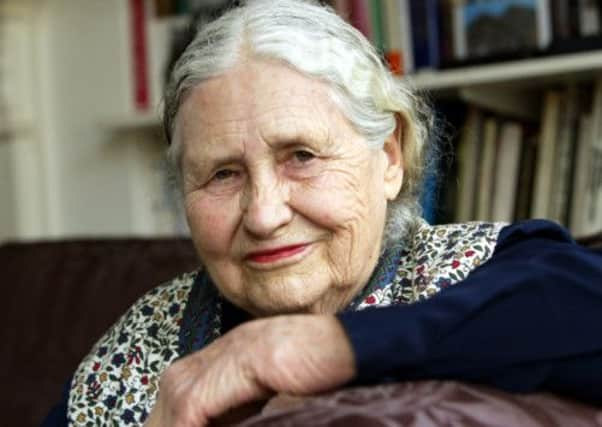Nobel Prize winner Doris Lessing dies aged 94


The writer, who penned more than 50 other novels ranging from politics to science fiction, passed away at her London home in the early hours of yesterday morning, according to her publisher.
Lessing became the oldest winner of the Nobel Prize for Literature when in 2007 she won the award for her life’s work aged 88.
Advertisement
Hide AdAdvertisement
Hide AdJonathan Clowes, her long-time friend and agent, said she was “a wonderful writer with a fascinating and original mind”.
“Doris Lessing was one of the great writers of our age,” said Charlie Redmayne, CEO of HarperCollins UK.
“She was a compelling storyteller with a fierce intellect and a warm heart who was not afraid to fight for what she believed in.”
The author is survived by her daughter Jean and granddaughters Anna and Susannah.
Born in what was then Persia, now Iran, on 22 October 1919, Lessing was raised in Southern Rhodesia, now Zimbabwe.
She moved to Britain at the age of 30 with the manuscript of her first novel, The Grass Is Singing, about the relationship between a white farmer’s wife and her black servant. It was an immediate bestseller in Britain, Europe and America.
But it was her 1962 novel The Golden Notebook that propelled her on to the international stage. The Swedish Academy said in its Nobel citation that it “belongs to the handful of books that informed the 20th-century view of the male-female relationship”.
But Lessing’s output ranged widely. In some 55 novels and collections of short stories and essays, she focused on the role of the family and the individual in society and even ventured into science fiction.
Advertisement
Hide AdAdvertisement
Hide AdThe four novels of Canopus in Argos, published between 1979 and 1983, provide a “space eye” view of human life by describing a colonised planet Earth, used as a social laboratory by galactic empires.
In The Good Terrorist (1985), she returned to the political arena through the story of a group of political activists who set up a squat in London.
In 1987’s The Wind Blows Away Our Words, Lessing attacked what she saw as the West’s indifference to the war in Afghanistan.
Her last novel, although several earlier books have since been re-released as e-books, was Alfred and Emily, in 2008.
Nick Pearson, her editor at HarperCollins/4th Estate, said: “I adored her.
“When I took over looking after her books she had a fairly formidable reputation, and the first time I went to meet her I was terrified, but she was always completely charming to me.
“She was always more interested in talking about the other writers on our list, what the young writers were working on – and reading – than in talking about her own books.”
Mr Pearson said of Alfred and Emily: “That was a very interesting book for her, revisiting the early life of her mother and her father and how they had been touched by the First World War. At the time she said to me ‘this is my last book,’ and we accepted that. She was already at a great age, and I could see she was tired.”
Advertisement
Hide AdAdvertisement
Hide AdLessing left school at 13 and educated herself, reading Dickens, Tolstoy, DH Lawrence and Dostoyevsky.
In Walking in the Shade, the second volume of her autobiography, she wrote that by the age of 14 she could “set a hen, look after chickens and rabbits, work dogs and cats, pan for gold, take samples from reefs, sew, use the milk separator and churn butter, make cream cheese and ginger beer… drive the car, shoot guineafowl for the pot, preserve eggs – and a lot else.
“Doing these things I was truly happy,” she wrote. “Few things in my life have given me greater pleasure.”